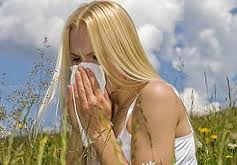Seasonal allergic rhinitis, allergic rhinitis, or hay fever is common in the US when springtime comes. This is usually because of the presence of allergens that are freed in the air after winter. “Hay†fever doesn’t mean that it is caused by hay.  This is a reaction to the various allergens that surround you. When there is an inflammation of the sinus lining as well, this is called rhinosinusitis
Signs and symptoms of hay fever are runny nose, nasal congestion, loss of smell, coughs, tear production, itching of eyes and nose (eyes with redness and swelling of the white area-allergic conjunctivitis), sneezing, and clear mucus dripping. Hay fever may lead to asthma and sinusitis. This definitely disrupts your activities of daily living and causes embarrassment for the patient. It is mainly caused by pollen grains that are caught in the wind and inhaled.
Hay fever can be properly diagnosed through skin testing and blood testing. If the patient has a skin disease, blood testing should be performed. There are many proposed treatments for hay fever but the common means to do this is by taking medications that are prescribed by your doctor. Take a look at this list of hay fever medicines so that you may want to ask your doctor about:
1. Cromolyn sodium
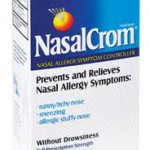 Cromolyn sodium is included in the list of hay fever medicines. You can buy this over-the-counter that you can administer as long as you need it. If you need an eyedrop form of this, you could avail of it through a prescription. Cromolyn sodium stops the release of histamine. You can best harness its benefits by taking it before your symptoms even start. So far, it doesn’t have any side effects that you should be worried about.
Cromolyn sodium is included in the list of hay fever medicines. You can buy this over-the-counter that you can administer as long as you need it. If you need an eyedrop form of this, you could avail of it through a prescription. Cromolyn sodium stops the release of histamine. You can best harness its benefits by taking it before your symptoms even start. So far, it doesn’t have any side effects that you should be worried about.
2. Cortecosteroids (nasal)
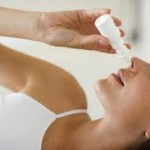 Nasal corticosteroids such as Beconase (beclomethasone), Flonase (fluticasone propionate), Nasonex (mometasone), and Veramyst (fluticasone furoate) are included in the effective list of hay fever medicines. They are good for long term use but some side effects are nasal irritation and unpleasant taste or smell. These are said to be the most potent of all hay fever medications.
Nasal corticosteroids such as Beconase (beclomethasone), Flonase (fluticasone propionate), Nasonex (mometasone), and Veramyst (fluticasone furoate) are included in the effective list of hay fever medicines. They are good for long term use but some side effects are nasal irritation and unpleasant taste or smell. These are said to be the most potent of all hay fever medications.
3. Decongestants
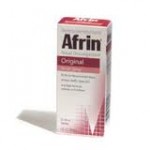 Drixoral, Neo-Synephrine (phenylephrine), Afrin (oxymetazoline),Sudafed, and Actifed are included in the list of hay fever medicines. You can get these over-the-counter. Some side effects that you should deal with are headaches, insomnia, irritability, and elevated blood pressure. Make sure that you don’t use these for more than 2 or 3 days because your symptoms may just be aggravated or happen again.
Drixoral, Neo-Synephrine (phenylephrine), Afrin (oxymetazoline),Sudafed, and Actifed are included in the list of hay fever medicines. You can get these over-the-counter. Some side effects that you should deal with are headaches, insomnia, irritability, and elevated blood pressure. Make sure that you don’t use these for more than 2 or 3 days because your symptoms may just be aggravated or happen again.
4. Antihistamines
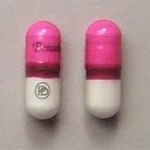 Antihistamines come in the form of eyedrops, nasal sprays, and pills. These really help inrunny nose, itching, and sneezing. These are included in the list of hay fever medicines because they stop the histamine. You could avail of Benadryl (diphenhydramine), Claritin (loratidine), and  Zyrtec (cetirizine) over-the-counter. Those that should be bought with a prescription are Allegra (fexofenadine), Astelin (azelastine), and Patanase (olopatadine).
Antihistamines come in the form of eyedrops, nasal sprays, and pills. These really help inrunny nose, itching, and sneezing. These are included in the list of hay fever medicines because they stop the histamine. You could avail of Benadryl (diphenhydramine), Claritin (loratidine), and  Zyrtec (cetirizine) over-the-counter. Those that should be bought with a prescription are Allegra (fexofenadine), Astelin (azelastine), and Patanase (olopatadine).
5. Leukotriene modifier
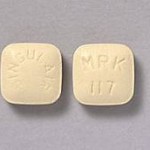 Leukotrienes could be blocked by Singulair (montelukast). This could stop excessice mucus production, and asthma. Its side effects include abdominal pain, headaches, dizziness, tooth pain, and coughs. It is also associated with aggression, suicidal ideations, depression, agitation, and hallucinations.
Leukotrienes could be blocked by Singulair (montelukast). This could stop excessice mucus production, and asthma. Its side effects include abdominal pain, headaches, dizziness, tooth pain, and coughs. It is also associated with aggression, suicidal ideations, depression, agitation, and hallucinations.
6. Ipratropium (nasal)
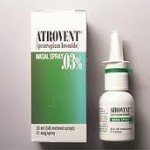 This is one of the items in the list of hay fever medicines that comes in the form of a nasal spray. Atrovent (ipratropium) helps stop the production of excess mucus. It also treats post nasal drip, nasal congestion, and sneezing. Side effects include difficulty in urination, dizziness, and blurred vision. You should not use this if you are diagnosed with an enlarged prostate.
This is one of the items in the list of hay fever medicines that comes in the form of a nasal spray. Atrovent (ipratropium) helps stop the production of excess mucus. It also treats post nasal drip, nasal congestion, and sneezing. Side effects include difficulty in urination, dizziness, and blurred vision. You should not use this if you are diagnosed with an enlarged prostate.
7. Corticosteroids (oral)
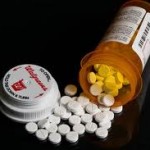 Severe allergy is the target of oral corticosteroids like prednisone. If you use this on a long term basis, you may develop osteoporosis, cataracts, and general muscle weakness. Make sure that you only use this short term.
Severe allergy is the target of oral corticosteroids like prednisone. If you use this on a long term basis, you may develop osteoporosis, cataracts, and general muscle weakness. Make sure that you only use this short term.
You should work with your doctor in taking these items that are included in the list of hay fever medicines. There are allergy shots that your doctor could also give you with these prescriptions. This will gradually desensitize you and conquer your allergy problems. Irrigating your nose with salt water preparation could also help in getting rid of the excess mucus. Prepare the irrigation with one fourth teaspoon of salt dissolved in two cups of warm water. You could use a bulb syringe or a wash bottle to administer the solution into your nose.
Prevention is better than sure so just make sure that you stay away from the allergens that trigger your allergic reaction. Your doctor may give you a good combination of allergy medications for higher potency. If you have to buy medications for your child’s hay fever, remember to read the labels carefully.
